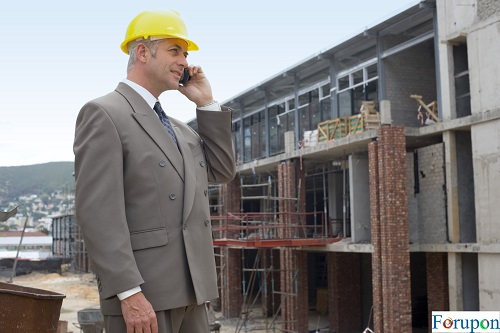hard hats: After a long hiatus, the UK construction industry is beginning to fire on all cylinders again – ONS figures show it grew by a huge 5.8% in March alone. With all this activity, it’s crucial that construction business owners continue to perform their expert roles to the best of their ability, but what are their responsibilities?
Planning goals and setting a mission
For upon |As the figurehead of the construction business, owners need to take the reins when it comes to planning company goals and setting wider missions that are tougher to pin down.
This involves developing a strategy that accounts for the company’s place in the wider market, its competitors, strengths, weaknesses, and the broader trends that are occurring in construction – modular buildings or zero-energy homes, for instance.
Selecting professionals
The output of a work crew is only as good as its constituent members, and their choice is primarily the responsibility of the business owner (or the hiring manager they select for the job).
When choosing professionals – staff or contractors – it’s important to consider marks of quality such as whether they are a member of the Federation of Master Builders (FMB), how many years of experience they have, and whether they have completed similar projects before.
Consider the existing makeup of your work teams to fill skills gaps with your hires, and never forget the power of word of mouth: if they come well-regarded from other building businesses, take that as a strong seal of approval.
Guaranteeing safety
Personal protective equipment (PPE) is absolutely crucial in the building trade, and ultimately the supply of it is the responsibility of the company owner. Supply staff with suitable PPE that suits the various roles on-site, and make sure that staff wears their equipment (or their own) whenever they are on site.
Whether it’s strong and brightly coloured hard hats, steel toe-capped boots, or respirators, it’s not only a moral duty to keep workers safe, but a financial one, given the likely cost of litigation, should the worst happen.
All relevant health and safety training should also be arranged by the company owner, and the individuals they hire should already have the right qualification. Without the right training, the risk of accidents is magnified across the entire worksite.
Financial management
To guarantee the ongoing viability of their construction business, owners must perform due diligence when managing the finances of their company. This means properly costing work, ensuring the business gets paid on time, and making sure that outgoings don’t trump the company’s investments in people, equipment, and other assets.
hard hats: Implementing suitable asset management is also crucial. With so many expensive pieces of equipment, machinery, and vehicles in use, this will help monitor their location and usage. This will ensure that no equipment goes missing – and doesn’t need to be expensively replaced – and tools, vehicles, and such are used to the greatest effect.


Comments are closed.